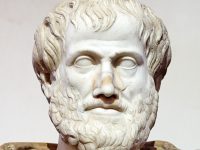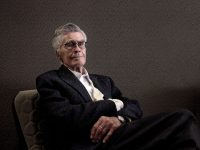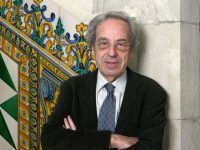 |
||
|
From the outset, modern philosophy has taken an interest in cultural diversity. However, at the start it did so paradoxically, by reducing plurality to the lowest common denominator universal to humanity. In view of cultural diversity, this article analyzes the relationships between philosophy and anthropology when it comes to discerning human nature. From the outset, modern philosophy has shown an interest in human diversity. A fascination that led Descartes to say that for nine years he did nothing but «go back and forth, around the world, trying to be more the spectator than the actor in the plays represented therein.» Montaigne, who moved neither often nor far from his native Perigord, set his famous essay The Cannibals in accordance with the rhetorical device of «having been there», in that far off land, because his story is built on the testimony of «a man who had lived ten or twelve years in that other world, which has been discovered in our century», namely Brazil, where Villegaignon landed in 1557. To do so, seeking observational plausibility, he supposedly abides by the accounts given by merchants and sailors familiar with those lands «without confronting them with cosmographers reports», as they (like him) hardly ever left home. Likewise, in his Essay Concerning Human Understanding, Locke resorted to the Tupinamba people reported by Montaigne to assert that there are populace who have no notion of God and therefore such a notion is not innate; while in his Treatises of Government he implements The Natural and Moral History of the Indies by José de Acosta (1590) in seeking to explain the genesis of property or civil society. Philosophers, quiescent travellers Montaigne, Descartes and Locke had no experience of intense cultural estrangement. But despite being «quiescent travellers», they all attempted to put themselves in the skin of distant peoples in the inescapable process of pondering on mankind. Perhaps the apotheosis of such a view is that found in Herder. In 1768, in a letter to Kant, he confessed that the «purpose» of his existence was to know many people and consider some things differently as Diogenes has seen them «down his barrel». And in this spirit of adventure he describes his project in1769 in his Journal of my Travels: «What a work on the human race! On the human spirit! On the culture of the Earth! On all the spaces! Epochs! People! Forces! Mixtures! Figures! Asian Religion!… Everything Greek! All Roman! Northern Religion, law, customs, war, honour! Papal epoch, monks, learning…! Chinese or Japanese Politics! Natural science of the new world! American customs, etc.! Universal History of the formation of the world!» However, it was another voyage by yet another quiescent traveller that brought a different perspective which lingered on: Diderot and the Supplement au voyage de Bougainville. Herein, space is created for a new double-sided area of learning, a discipline that is as yet unnamed; but Diderot thinks scientifically. On one hand there is Bougainville, the captain of the Boudeuse writer of Voyage autour du monde, who provides observational knowledge that does more than just map out letters and routes by which the world becomes one world, but also concerns the nature of both animals and plants and describes the customs and manners of men, their kinship, property, religious beliefs or forms of government. While, on the other hand, Diderot’s meditation is a «supplement» to the relationship linking that seafarer who records botanical, zoological and human diversity; meditation, of the reader in Paris, on those experiences «lived» by another who has travelled faraway and returned to tell all. However, what is new is what until then was separate (recall the aforementioned cases) Diderot glimpses it with another, and spares no comment on the characteristics that one who practices this new kind of research must have. That is, neither the empirical knowledge nor the critical-philosophical reflection is sufficient in isolation. For this knowledge of cultural diversity would provide rigorous knowledge of human nature that transcends what we think is peculiar to one place. In time, anthropology, with its ethnographic (descriptive) and ethnologic (comparative) levels, would take the place carved by Diderot. In fact, since then, strong critical and moral reasoning has pervaded, because his intention was to establish a natural foundation for universal moral and minimum politic, which, being consistent with human nature, did not make men wretched, as was the case of Catholicism and absolutism. Since anthropology became established as a discipline with scientific pretensions, a great part of philosophy ceased to look askance at this knowledge revealing the inevitable cultural otherness that, although empirical, had a strong philosophical component. However, after a while, that provision was made in a peculiar or paradoxical way: insisting on plurality, later to be abolished, reducing it to the lowest common denominator universally worthy of being preached to all men (universality, always considered implicit to the laws of physical nature). However, some early developments of the discipline, such as particularism influenced by Herder, had abandoned that path. But the fact is that this diversity/unity dilemma lives on. Let’s take a look.
AN ANTHROPOLOGICAL VOCATION Arguably, the norm here exemplified by Diderot, but fulfilled in many different ways, has been repeated incessantly. For anthropology greatly desires to draw up the boundaries between what can be considered local, variable and, therefore, conventional, and that deemed constant, universal and, therefore, natural. Regardless of how these two classes have been denoted, this general viewpoint brought us an image of man as being composed of hierarchical layers comprising biological, psychological, social and cultural strata. This image also encompassed a research strategy, obviously fulfilled in many ways: on one hand, it sought certain universal principles or empirical uniformities in different cultures which remained constant despite spatial-temporal diversity of customs; on the other, it attempted to link these principles with the invariant elements laid down by biology, psychology or sociology. Or put in another way: it tried to discern the underlying needs of biological, psychological or social nature, and then consider the cultural universals as institutional ways of dealing with such needs. But the promises were not easily kept and in the failure to do so the very notion of human nature was wounded. A wound caused by different onslaughts. First, it was the opinion of many that genuine functional interconnections could never be unquestionably established by which cultural traits were functions of the biological or psychological levels. The most that could be established, according to some, were analogies or parallelisms between different cases. But moreover, what is the point –what actual knowledge about human nature is contributed– in stating, for example, that the need for all societies to reproduce their members or their property shows the universality of family or trade? Are they not merely empty abstractions against the multiple forms of family or business? And is not being aware of them and comparing them how we come to understand their uniqueness or hybridization?
Therefore, secondly, the question arises whether, in the definition of human nature, these universal principles or empirical similarities are so central that the cultural particularities should comparatively be considered clearly irrelevant or of secondary importance. Take one example. Kluckhorn stated that it is universally predicable that every religion entertains the belief in life after death. But one may rejoin that for this belief to be attributable to Buddhists, Catholics, Shiites or to the myriad of animists, etc., it must be formulated in such an abstract and general way that as a statement of universality it becomes invalid and weak. As for each type of believer life and death may mean something very different, just as the concept of time («afterwards») may be quite different. It was C. Geertz, from whom I have taken the above argument, who stated something that was already rumoured. It is pointless to engage in empirically discerning universal cultural traits if their content is not relevant: «The issue is not […] whether human beings are biological organisms with intrinsic characteristics […] nor is it whether they show commonalities in mental functioning wherever we find them (Papuans envy, Aborigines dream) […]. The issue is, what are we to make of these undisputed facts as we go about explicating rituals, […] or comparing languages». Put another way, what matters is not, for example, that men share the ability with certain higher primates to distend their facial muscles in response to pleasant stimuli and contract them to unpleasant stimuli, nor that all men have the ability to smile. What is relevant, in terms of our knowledge of mankind, is what the different ways of smiling and their different uses in numerous social contexts can tell us. That is, what matters is not so much what we think is common, which is always very general, but what should interest us is the comparison and contrast for the sake of defining improved ways of living that we believe are desirable. From this primacy placed on cultural differences in the understanding of mankind, there ensued both the rejection of the issue concerning «one» human nature, and the prevalence of a particularistic and hermeneutic perspective in social and cultural anthropology. Things have happened like this so many times: it is not that a question has been answered but rather there has been a change in the viewpoint adopted and therefore the issues of concern. It was this, in short, that Foucault defended in a famous debate held with Chomsky filmed by Dutch television in 1971: the concept of human nature was not a scientific concept, as such, but an «epistemological indicator», i.e., a concept that had served in the eighteenth century to define one field of knowledge compared to others such as theology, biology or history. But it so happens that in the last third of the twentieth century, the struggle was not with theology (as in the case of Diderot), but with history. Thus, anthropology had to address the collapse of a feature –not lacking in importance– of the world that gave it life: the break-down of the structure of colonial rule. And it is after the mass emancipation of the colonies when, roughly speaking, the issue of human nature lost the interest it had held in other epochs.
CURRENT ANTHROPOLOGY As Shweder stated, relativism, wishing to escape from a eurocentric abstract universalism, ultimately intended to «allow for cultural diversity». And no doubt, much of postcolonial anthropology, especially the interpretive kind, today takes on a clearly relativistic tone, whose intention, critically and morally speaking too, is none other than to place as much importance as possible on the different ways of being in the world, from both the transcultural and transhistorical standpoints. In this context, the notion of human nature (or the essence of mankind), with its universality and timelessness, is considered more of a hindrance than a guiding principle in ethnological research.
Unlike Diderot, nowadays few people think, at least in the field of empirical anthropology, that universal morality and universal politics can be inferred from what is common to human nature as, indeed, Chomsky argued in the aforementioned debate with Foucault. Because Chomsky believed the huge gap between children’s rudimentary linguistic experience and their unlimited capacity to deal with totally new situations (derived from precarious and partial exposure) could only be explained if one postulates the existence of innate schema or organizing principles that govern all our social and intellectual behaviour. Such principles and schema, which are repeatedly summarised by the concept of «creativity», would constitute the type of human nature that a physical-biological scientific approach should study. At the same time, he thought that a decent model of society was based on and derived from, such a nature. Resorting to the old concept of alienation, he stated that a society worth fighting for was one that did not inhibit, in any forceful way, the development of such valued creativity. Foucault’s objections on this point were similar to those posed by the American post-colonial anthropologist (in fact, they were based on his but tailored to suit the needs of the discipline). Not only is seeking unknown human nature –which he claimed is knowable according to a long-term promissory note– of little point epistemologically and politically, but one runs the risk of thinking in terms of a certain epoch in our society and culture: socialism in the late nineteenth and early twentieth century conceived human nature to be alienated according to sexuality, a family model and a bourgeois-type aesthetic. One could not even escape the assumptions underlying the Taylorist and Fordist conceptions of work, conceiving man as a human engine (and, with rare exceptions, when they said «man» today we should understand «male»).
However, when what is common has not been sought from cultural diversity but rather in relation to potential specific changes, the discussion of human nature is with us once more. But not so much as to be a topic of debate, but as a framework for discussions about policy regulating biotechnology, in order to safeguard a self-understanding of the species based on the notions of autonomy, freedom and equality of individuals (Habermas, The Future of Human Nature). If genetic manipulation, not for therapeutic purposes but for selecting future personality traits (in the future life of the individual), were left up to the parents or agencies unrelated to the unborn baby, then people could no longer understand themselves as responsible for their biographies. And one cannot say that there is an asymmetry in the parent-child relationship regarding upbringing, as, in terms of identity, the adult can become reflective and critical about such asymmetry. By contrast, concerning genetic manipulation, on being irreversible, there is not «this possibility of self-critical appropriation of the history of one’s upbringing.» However, this type of argument again seems to support Foucault’s statement regarding the use of the notion of human nature as a concept to define a field of knowledge. For what is at stake here is the demarcation of a discursive space where one wonders about «ethical self-understanding as a species» (Habermas’ expression, my emphasis). That is, in essence, a claim of philosophy as it corresponds to arguing that these problems cannot be approached from science (biology), but from an inter-subjective ambit where normative viewpoints are discussed and reasoned. Thus, what is at issue is not human nature, immutable and timeless, but what notion we have, or want to have and develop, of human dignity. Given the different life choices offered, either from the cultural plurality that empirical anthropology assayed, or from the possibilities that biology and technology pose, rather than seeking abstract common denominators that constitute the essence of human nature, the focus now rests on ensuring the conditions that facilitate an endless dialogue, a mixture of hope and scepticism, by which partial agreements and disagreements are reached in such a circumscribed way as to ultimately allow us to continue discussing further the various substantive projects of a good life. |
© P. Millet, 2009 Different ways of caring for oneself vary dramatically depending on cultural diversity. Moreover, in all contemporary societies, local and foreign cultural forms are interwoven, the traditional and the new. The picture shows the stall of a healer (guerisseur) on the Akodessewa market in Lomé (Togo). «Since anthropology became established as a discipline with scientific pretensions, a great part of philosophy ceased to look askance at this knowledge revealing the inevitable cultural otherness that, although empirical, had a strong philosophical component» «For anthropology greatly desires to draw up the boundaries between what can be considered local, variable and, therefore, conventional, and that deemed constant, universal and, therefore, natural» «Nowadays few people think that universal morality and universal politics can be inferred from what is common to human nature» «The notion of human nature with its universality and timelessness, is considered more of a hindrance than a guiding principle in ethnological research» «The discussion of human nature is with us once more as a framework for discussions about policy regulating biotechnology»
|
|
© Mètode 2011 - 67. Online only. Human Nature - Autumn 2010










